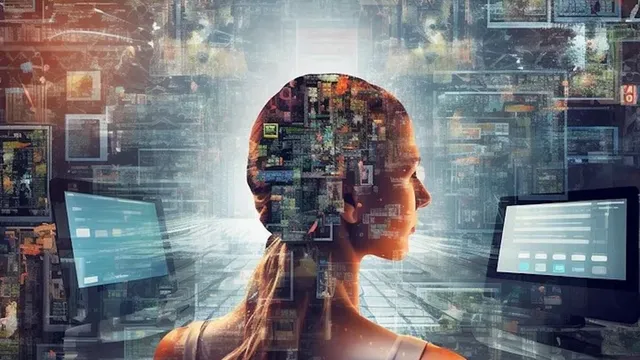- By Alex David
- Mon, 15 Sep 2025 01:14 AM (IST)
- Source:JND
AI-powered chatbots are no longer just answering work emails or planning grocery lists — they’re now guiding people through matters of faith. According to a New York Times report, apps like Bible Chat, with more than 30 million downloads, and Hallow, which briefly topped Apple’s App Store last year, are drawing millions seeking digital companionship for their spiritual journeys.
Chatting with God, Literally
While many of these apps are designed to point users toward scripture and religious doctrine, some go a step further. At least one platform allows users to “chat with God” directly — raising eyebrows among religious scholars and technologists alike.
Rabbi Jonathan Roman noted that such apps could be a valuable entry point: “It could be a way into faith for a whole generation of people who have never been to a church or synagogue.”
ALSO READ: AIIMS Launches AI-Powered Navigation App “Disha” To Guide Patients And Visitors
The Algorithm vs Discernment
But experts caution that what feels like divine guidance may simply be algorithmic validation. These chatbots run on AI models optimized to be agreeable and responsive, not discerning.
Heidi Campbell, a professor at Texas A&M who studies digital religion, warns that this creates a spiritual echo chamber:
“It’s not using spiritual discernment, it is using data and patterns. Chatbots tell us what we want to hear.”
This dynamic could, in theory, reinforce conspiratorial or delusional thinking, especially among users who see the chatbot’s responses as carrying divine weight.
ALSO READ: Amazon Pulls AI-Generated Books On Charlie Kirk Assassination Amid Conspiracy Theories
Faith Meets Tech: A Growing Market
The speed at which religious chatbots are proliferating points to a new digital era where AI and spirituality are intersecting:
Accessibility: People who can’t easily access a physical place of worship use the apps as an always-on guide.
Personalisation: AI provides custom-tailored responses to each user, giving scripture a more conversational tone.
Scale: These platforms have millions of downloads, far beyond local institutions.
However, how to balance faithful interpretation and algorithmic bias remains an open question.
Bottom Line
Religious chatbots are fundamentally changing the way people interact with faith in the digital age — providing a new “way in” for some, but also raising concerns about misrepresenting doctrine and feeding users bad information via algorithms. As AI becomes a regular part of more personal parts of life, faith communities and technologists will have to grapple with how to establish boundaries between divine guidance and machine-generated suggestion.

